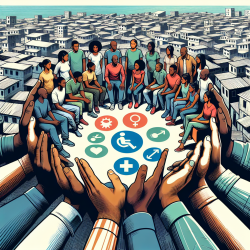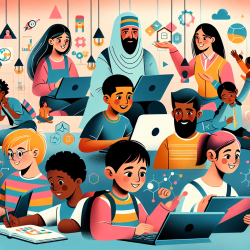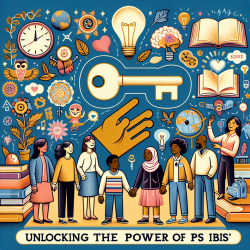The issue of teen pregnancy in Haiti, particularly in areas like Cité Soleil, is a complex and multifaceted problem that requires urgent attention from practitioners. The research article “Give Me Proof”: A Covert but Coercive Form of Non-partner Sexual Violence Contributing to Teen Pregnancy in Haiti and Opportunities for Biopsychosocial Intervention provides critical insights into the underlying causes of this issue and offers pathways for intervention.
The Context: Cité Soleil
Cité Soleil is a densely populated shantytown in Port-au-Prince, Haiti. It is characterized by extreme poverty, violence, and limited access to healthcare and education. These conditions create a fertile ground for gender-based violence (GBV) and non-partner sexual violence (NPSV), which significantly contribute to the high rates of unplanned teen pregnancies.
Key Findings from the Research
The study highlights a covert form of coercive control known as "Banm prèv" or "Give me proof," where young girls are coerced into proving their virginity or non-promiscuity. This phenomenon is deeply rooted in damaging gender norms and societal expectations that leave girls with an illusionary choice between yielding control over their bodies or facing gang rape.
The repercussions of such coercion are severe, leading to unplanned pregnancies that bring about guilt, shame, stigma, depression, anxiety, and trauma among teens. The study underscores the need for contextually relevant interventions that challenge existing norms and empower young girls with knowledge about their reproductive rights.
Opportunities for Biopsychosocial Intervention
Practitioners have a crucial role in addressing these challenges through biopsychosocial interventions. Here are some recommended strategies:
- Comprehensive Sexuality Education: Implement educational programs that provide accurate information about sexual health, consent, and reproductive rights. Tailor these programs to be culturally relevant and age-appropriate.
- Community Engagement: Work with local leaders and organizations to challenge harmful gender norms and promote gender equity. Use traditional storytelling methods like krik-krak to engage communities in discussions about human rights and sexual health.
- Mental Health Support: Provide mental health services to teens experiencing unplanned pregnancies. Focus on reducing depressive symptoms, stress, and anxiety through culturally sensitive approaches.
- Economic Empowerment: Develop programs that offer skills training and economic opportunities for young girls to reduce their socioeconomic vulnerability.
The Role of Practitioners
Practitioners must advocate for policies that protect the rights of young girls and women. Collaborating with international organizations like UNFPA can help improve access to healthcare services and educational resources. Practitioners should also engage in ongoing research to better understand the needs of this population and develop effective interventions.
Conclusion
The covert coercion faced by young girls in Haiti is a significant barrier to their health and well-being. By implementing the findings from this research, practitioners can play a pivotal role in transforming these challenges into opportunities for positive change. Through education, community engagement, mental health support, and economic empowerment, we can work towards a future where every girl has the right to make informed choices about her body and her future.
To read the original research paper, please follow this link: “Give Me Proof”: A Covert but Coercive Form of Non-partner Sexual Violence Contributing to Teen Pregnancy in Haiti and Opportunities for Biopsychosocial Intervention.










